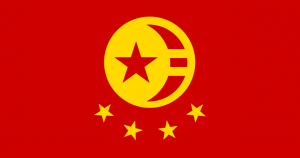Language/Yue-chinese/Grammar/Expressing-the-Best-and-the-Worst
As a Yue Chinese teacher for over 20 years, I am always looking for ways to make the language more accessible and interesting to my students. One way to make Yue Chinese more engaging is by incorporating cultural information and interesting facts. In this lesson, we will be discussing how to express the best and the worst in Yue Chinese using superlative adjectives, such as the biggest, the smallest, and the most expensive. By the end of this lesson, you will have the tools necessary to make comparisons and express your preferences in Yue Chinese.
Superlative Adjectives
Superlative adjectives are used to make comparisons and express the best and the worst. In Yue Chinese, superlative adjectives are formed by adding the word 最 (zuì) in front of the adjective.
For example:
| Yue Chinese | Pronunciation | English |
|---|---|---|
| 最大的 (zuì dà de) | /tsweɪ⁵⁵ taɪ̯⁵⁵ tɤ⁵⁵/ | the biggest |
| 最小的 (zuì xiǎo de) | /tsweɪ⁵⁵ ɕi̯ɑʊ̯⁵⁵ tɤ⁵⁵/ | the smallest |
| 最贵的 (zuì guì de) | /tsweɪ⁵⁵ kʷei̯³³ tɤ⁵⁵/ | the most expensive |
Note that the word 最 (zuì) can be translated as "the most" or "the -est" in English.
When using superlative adjectives in Yue Chinese, it is important to remember that the adjective must agree with the noun that it modifies in both number and gender.
For example:
- 这是我最喜欢的颜色。(zhè shì wǒ zuì xǐ huān de yán sè) - This is my favorite color.
- 这是我最喜欢的音乐家。 (zhè shì wǒ zuì xǐ huān de yīn yuè jiā) - This is my favorite musician.
Exceptions
There are some exceptions when using superlative adjectives in Yue Chinese. For example, the adjectives 长 (zhǎng) which means "long" and 短 (duǎn) which means "short" do not use 最 (zuì). Instead, the modifiers 最长的 (zuì cháng de) and 最短的 (zuì duǎn de) are used to express the longest and the shortest respectively.
For example:
| Yue Chinese | Pronunciation | English |
|---|---|---|
| 最长的 (zuì cháng de) | /tsweɪ⁵⁵ tʂʰɑŋ⁵⁵ tə⁵⁵/ | the longest |
| 最短的 (zuì duǎn de) | /tsweɪ⁵⁵ dwɑn²¹⁴ tə⁵⁵/ | the shortest |
Another exception is the adjective 多 (duō) which means "many" or "much". The modifier 最多的 (zuì duō de) is used to express the most, but the word 最 (zuì) can also be omitted in spoken Yue Chinese.
For example:
| Yue Chinese | Pronunciation | English |
|---|---|---|
| 最多的 (zuì duō de) | /tsweɪ⁵⁵ twɔ³³ tə⁵⁵/ | the most |
| 很多人 (hěn duō rén) | /hɐn²¹⁴ twɔ³³ ɻən⁵⁵/ | many people |
Vocabulary
Here are some superlative adjectives that you can use to express the best and the worst in Yue Chinese:
| Character | Pinyin | Definition |
|---|---|---|
| 最大的 | zuì dà de | the biggest |
| 最小的 | zuì xiǎo de | the smallest |
| 最贵的 | zuì guì de | the most expensive |
| 最便宜的 | zuì pián yi de | the cheapest |
| 最好的 | zuì hǎo de | the best |
| 最坏的 | zuì huài de | the worst |
Practice
Now that you have learned how to use superlative adjectives in Yue Chinese, it's time to practice! Here are some sentences for you to translate using the superlative adjectives from the vocabulary list above:
1. This is the biggest building in the city. 2. That is the smallest book I've ever seen. 3. This is the most expensive restaurant in town. 4. That is the cheapest car on the lot. 5. This is the best movie I've ever watched. 6. That was the worst Chinese food I've ever had.
Here are the answers:
1. 这是城里最大的建筑。(zhè shì chéng lǐ zuì dà de jiàn zhú) 2. 那是我见过的最小的书。(nà shì wǒ jiàn guò de zuì xiǎo de shū) 3. 这是镇上最贵的餐厅。(zhè shì zhèn shàng zuì guì de cān tīng) 4. 那是所有车里最便宜的。(nà shì suǒ yǒu chē lǐ zuì pián yi de) 5. 这是我看过的最好的电影。(zhè shì wǒ kàn guò de zuì hǎo de diàn yǐng) 6. 这是我吃过的最糟糕的中餐。(zhè shì wǒ chī guò de zuì zāo gāo de zhōng cān)
Conclusion
In this lesson, you have learned how to express the best and the worst using superlative adjectives in Yue Chinese. You also learned about exceptions to the rule when using certain adjectives. Remember to practice and use these superlative adjectives in your conversations and writing to help you express your preferences in Yue Chinese. By incorporating these new words and phrases into your vocabulary, you can have more engaging conversations with native speakers and gain a deeper understanding of the language and culture. Good luck and keep practicing!

